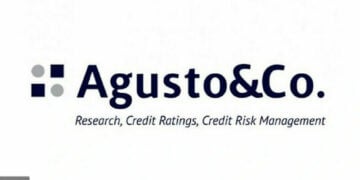The Central Bank of Nigeria (CBN) has once again demonstrated its resolve to uphold stability and discipline in the banking sector with its recent imposition of sanctions on nine Deposit Money Banks (DMBs) for non-compliance with cash distribution guidelines during the 2024 yuletide season. Each bank was fined ₦150 million, with the penalties directly debited from their accounts with the apex bank.
The affected banks—Fidelity Bank Plc, First Bank Plc, Keystone Bank Plc, Union Bank Plc, Globus Bank Plc, Providus Bank Plc, Zenith Bank Plc, United Bank for Africa Plc, and Sterling Bank Plc—failed to ensure adequate cash availability through Automated Teller Machines (ATMs) and at banking halls, in violation of the CBN’s directives.
The sanction is a decisive move to reinforce compliance with cash circulation policies, particularly during critical periods like the yuletide when demand for cash surges. It underscores the apex bank’s zero tolerance for actions that disrupt financial stability and erode public trust in the banking system.
The Scarcity Of Naira Notes And Public Frustration
The 2024 yuletide season was characterised by widespread complaints of cash shortages across the country. Nigerians, particularly those in rural areas, faced significant challenges in accessing funds for essential transactions. Despite the CBN’s efforts to inject sufficient cash into the system, the situation was exacerbated by banks hoarding notes and prioritising sales to Point-of-Sale (POS) operators and politically connected individuals.
Reports revealed that many banks deliberately withheld cash from their ATMs and banking halls, diverting it to unauthorised channels where it was sold at exorbitant rates. This unethical practice left ordinary Nigerians stranded, forced to pay high fees to POS operators or resort to other costly alternatives to access their own money.
The resultant public frustration was palpable. Many individuals and businesses struggled to meet their financial obligations, particularly during a season traditionally associated with heightened economic activity and celebrations. The scarcity of cash not only disrupted daily lives but also stoked inflationary pressures, as the cost of accessing cash added to the financial burden on households and businesses.
Many Nigerians who commended the CBN for imposing the sanctions on the erring banks say it will serve as a deterrence to future violations of regulatory guidelines.
“The actions of these banks go beyond operational inefficiency; they reflect a deeper problem of ethical lapses within the financial sector,” a Germany based Patrick Eliya said in reaction to the development during the yuletide, adding that “Instead of adhering to the principles of transparency and customer-centricity, some DMBs have prioritised profit at the expense of their customers.”
CBN’s Justification For The Sanctions
Acting director of corporate communications at the CBN, Mrs. Hakama Ali, emphasised that ensuring seamless cash flow is critical to maintaining public trust and economic stability. She stated that the CBN would not hesitate to impose further sanctions on any institution found violating its cash circulation policies.
This stance was reiterated by CBN Governor Olayemi Cardoso, who, at the November 2024 Annual Bankers’ Dinner of the Chartered Institute of Bankers of Nigeria (CIBN), warned that banks must strictly adhere to cash distribution guidelines or face severe penalties. According to him, the CBN’s commitment to ensuring a robust cash buffer and equitable access to currency remains unwavering.
The fines, though significant, are not merely punitive. They are part of a broader strategy by the CBN to restore order and discipline in the banking sector. By debiting the fines directly from the affected banks’ accounts, the CBN sent a strong message that non-compliance comes at a cost that financial institutions cannot ignore.
Pattern Of Regulatory Disobedience In The Banking Sector
This is not the first time Nigerian banks have been called out for unethical practices. The sector has a history of flouting regulatory directives, often prioritising profit over public interest.
In recent years, there has been a surge in unauthorised deductions from customer accounts, delayed reversals of failed transactions, and hidden charges. Between January and August 2024, the CBN facilitated the recovery of ₦7.05 billion and $714,569.03 from banks to customers, reflecting the scale of malpractices in the system.
Those who spoke on the development say the actions of the banks undermine the trust that customers place in the banking system. “When banks prioritise short-term profits through unethical means, they risk alienating the very customers who are essential to their operations,” a social critic, Philip Omobude said.
This pattern of unethical behaviour has not gone unnoticed. In October 2024, the House of Representatives introduced a bill to amend the Banking and Other Financial Institutions Act (BOFIA) 2020, aiming to curb fraudulent deductions and strengthen oversight mechanisms. The proposed amendments signal a growing recognition of the need for legislative backing to complement the CBN’s regulatory efforts.
The trend of cash hoarding and illegal sales to POS operators is another manifestation of this disregard for ethical banking practices. By diverting cash to unauthorised channels, banks create artificial scarcity, driving up the cost of accessing funds and undermining the CBN’s monetary policy objectives.
Are The Sanctions A Necessary Deterrent?
The banking sector is a critical pillar of Nigeria’s economy. Its stability and efficiency are essential for economic growth, financial inclusion, and public confidence in the financial system. The CBN, as the sector’s regulator, has a responsibility to ensure that banks operate within the framework of ethical practices and regulatory compliance.
The recent sanctions are a reminder that the apex bank will not tolerate actions that disrupt the smooth functioning of the financial system. By penalising non-compliance, the CBN aims to deter future violations, reinforce public trust, support monetary policy objectives and promote ethical banking practices.
The financial penalties send a clear signal to all banks that regulatory disobedience will not go unpunished. The fines, coupled with the public naming of the erring institutions, are intended to discourage similar behavior in the future. By taking decisive action against unethical practices, the CBN reassures Nigerians that it is committed to protecting their interests. This is particularly important at a time when public confidence in the banking system has been eroded by cash shortages and unauthorised deductions.
Beyond that, cash hoarding and illegal sales undermine the CBN’s efforts to ensure liquidity and control inflation. By enforcing compliance with cash distribution guidelines, the central bank strengthens its ability to achieve monetary policy goals. The sanctions highlight the need for banks to prioritise customer satisfaction and adherence to ethical standards. Financial institutions must recognise that their long-term success depends on maintaining the trust and loyalty of their customers.
While the sanctions are a step in the right direction, experts say ensuring long-term compliance requires addressing several challenges.
The general advice is that the CBN must enhance its monitoring and enforcement capabilities to detect and address violations in real-time. Regular spot checks and audits should become routine to ensure that banks comply with regulatory guidelines.
Some financial institutions may attempt to circumvent regulations or challenge the CBN’s authority, says Omobude who also stated that the central bank must be prepared to deal with such resistance through legal and operational measures.
Many Nigerians are unaware of their rights as bank customers or the avenues available for redress, a reason experts say the CBN must invest in public education campaigns to empower citizens to hold banks accountable.
From the perspective of commercial banks, regulatory compliance often comes with significant operational costs. Ensuring seamless cash availability during peak periods requires adequate planning, infrastructure, and logistics. For smaller banks, meeting these requirements can be particularly challenging.
However, this does not excuse the flagrant disregard for CBN guidelines. Many of the sanctioned banks are industry leaders with the resources to comply with cash distribution policies. Their failure to do so reflects a prioritisation of short-term profit over long-term stability and customer satisfaction.
Moreover, the practice of selling banknotes to POS operators and influential individuals is not only unethical but also detrimental to the broader economy. It creates a parallel market for cash, undermining the central bank’s efforts to control inflation and stabilise the financial system.
To prevent a recurrence of the issues that led to the recent sanctions, industry watchers say the proposed amendments to the Banking and Other Financial Institutions Act (BOFIA) 2020 should be expedited to provide a stronger legal basis for addressing unethical practices in the sector.
“The CBN should invest in digital tools to monitor cash distribution and detect non-compliance. Advanced analytics can help identify patterns of cash hoarding or unauthorised deductions. The CBN should also work closely with law enforcement agencies that can help crack down on illegal cash sales and other operational violations,” economic analyst, Stephen Kanabe stated.
The CBN’s sanctions on nine banks for cash hoarding during the 2024 yuletide season are seen a necessary step toward restoring order in Nigeria’s banking sector. By holding these institutions accountable, the apex bank has sent a strong message that regulatory disobedience will not be tolerated.
However, sustaining this momentum requires a holistic approach that addresses the root causes of non-compliance and promotes ethical banking practices.











